I signed up for Hinge on January 11, 2023.
Drawing on my basic math skills, I can say, with a sufficient degree of certainty, that I have donated 6 months of my life to this app.
In exchange for just one match.
What then “match” slightly overestimates what happened. Or:
- on June 11th I like an audio on his profile;
- on June 12th she wrote me “Ciao Erika”, I replied kindly and she asked me if I was from Turin. I say no, I explain that I live in Brianza and ask what I do in life;
- on June 20 – which means a week later – he replies. I tell her what I do and ask for additional information on her work, moved by a sincere interest.
- the… nothing, the nothing. Because it ends like this. With ghosting.
What can we learn from this exchange? Well, nothing. But on the other hand I understood how Hinge works and what makes it – or should make it – different from other dating apps.
What is Hinge?

Hinge is – I quote the claim verbatim – “the dating app designed to be deleted“.
What does it mean? That the basic purpose is to find lovethus ending your stay on these platforms.
To be able to hit the target, Hinge uses l’algoritmo Gale-Shapley. And yes, it has a name because it’s not just any algorithm: in 2012 the Nobel Prize for Economics went to the American mathematician Lloyd Shapley, for having created, together with his late colleague David Gale, a procedure also known as “algorithm of stable marriages”.
We are in the 60s and the two mathematicians have a problem to solve: to associate students and university faculties. However, there is an additional rule: every student must not only find accommodation but must remain satisfied, even if he has been excluded from the faculty that was his first choice.
It is therefore a question of avoiding creating unstable pairs, i.e. avoiding assignments in which an element x of the first set would prefer y to its current partner and an element y of the second set would prefer x to the assigned partner.
What is it for? 60 years ago to prevent students from dropping out of school, today to unite two people by reducing the risk that the relationship ends.
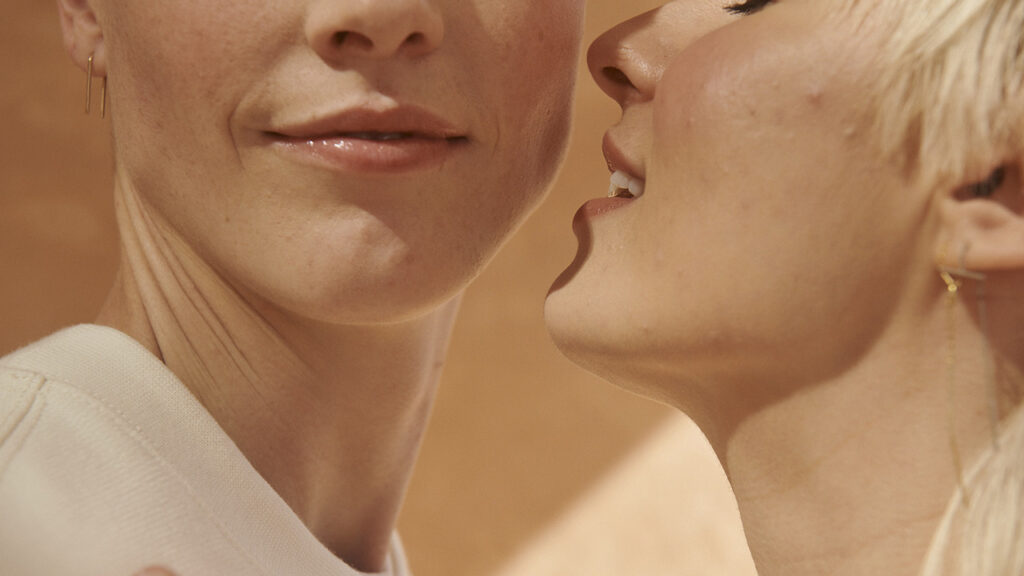
We will not go into the details of the algorithm but the meaning is soon understandable: Hinge selects for you people who should be particularly similar to you.
And it does so thanks to a team made up of experts of all kinds: researchers, behavioral scientists, data professionals, analyzing all phases of the meeting experience.
There’s even an entire department that delves into the factors that determine the success of a relationship, so we can show the user more people who may like him, thus creating stronger bonds and more seconds appointments. This research activity provides invaluable information about love and dating, therefore driving the app’s future features.
Yes, but in practice… how does Hinge work?
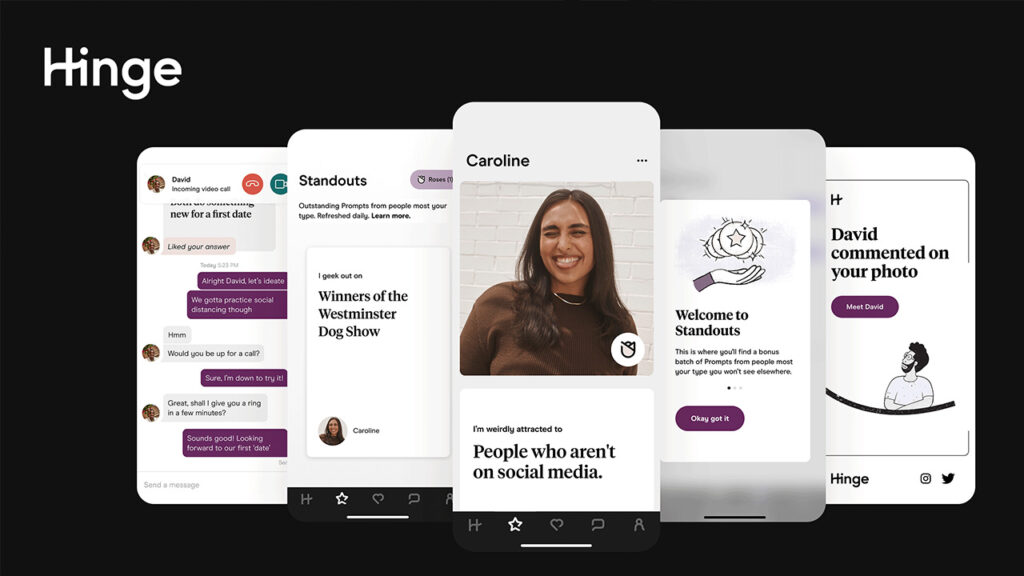
Like the most classic of fairy tales, we start from a… profile.
You can upload up to 6 photos, enter information about yourself ranging from work to political orientation, add written, video or even audio cues to spark conversation. And don’t worry, you don’t have to start from scratch: there’s a list to draw from that really contains a bit of everything.
Once completed, you can jump into this incredible adventure.
However, we advise you to take two further steps first:
The second point will make you collide with a bitter truth: to use all the filters you will have to subscribe. And not only. There are a few functions dedicated only to those who are subscribed to Hinge+ (16,99 € al mese) e Hinge X (29,99 €).
So yes, love has a price.
What do you take home with you? Better recommendations, priority over other profiles, unlimited Likes, the ability to discover who likes you, and more ways to view other users.
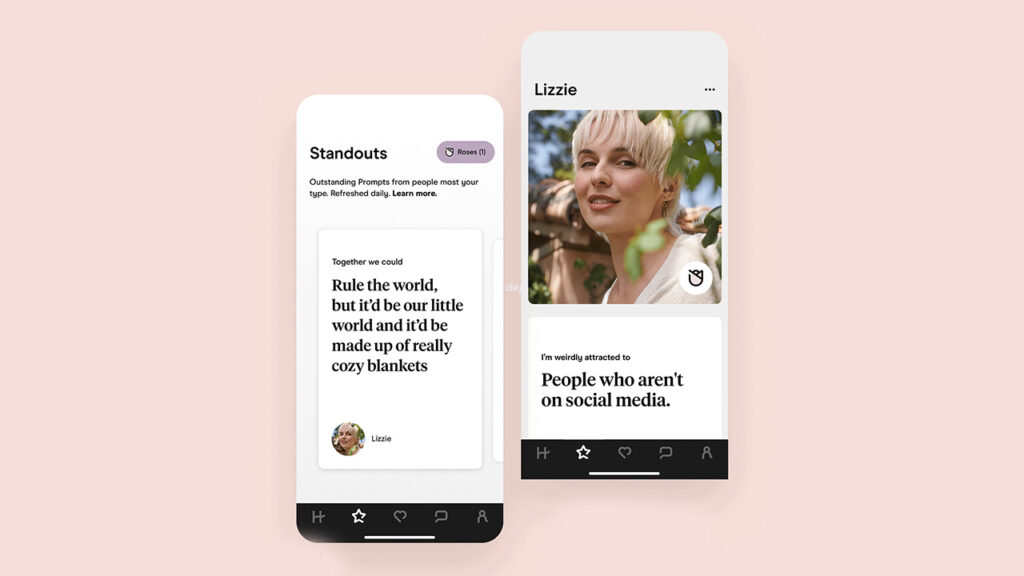
If you decide to approach Hinge without spending anything, well… it can be done.
The section Discover – indicated by an elegant H – will show you people like you. There is no swipe left or right though. You can hit the X, and then discard the user, or put a little heart, possibly enriched by a comment, a photo or a thought that particularly strikes you within that specific profile. You can also decide to send a rosea sign of very high appreciation that will allow you to appear at the top of the list in the tab Who likes you.
The section completes the picture Standoutswhich basically collects the most popular profiles, and the tab Matcheswhere you can find all the messages exchanged with other users.
Isn’t it going the way you want? You can evaluate the purchase of a Boost which will put your profile into effect for an hour. The price? €9.99.
There is also the SuperBoost which lasts 24 hours but the cost rises to €22.99.
What about security?
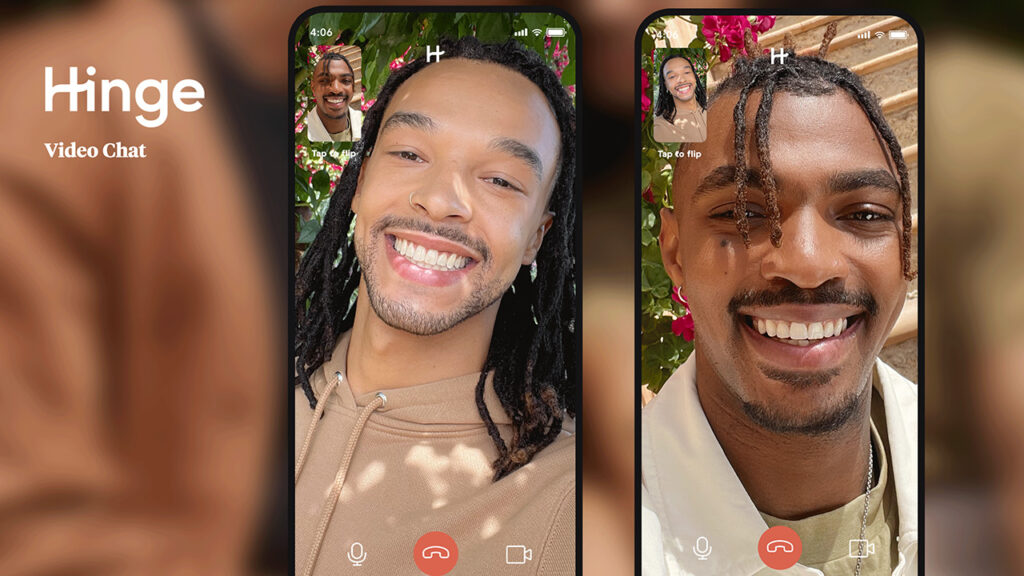
As always, common sense rules applythe ones we should apply to any app, service and feature on the internet.
In short, don’t share sensitive data with people you don’t know, don’t send compromising photos, don’t make appointments in isolated places with people you know nothing about.
Hinge on the other hand protects you with the presence of verified profiles and video chatmaking sure communications and data are vaulti both in transit and when stored in the cloud, giving employees access to only the data they need to get their jobs done, and periodically checking the security status of the app.
Designed to be cancelled?

January 2023, California.
I’m sitting in a club with a friend, Elisabetta.
For some obscure reason we end up talking about Tinder. I explain to her that I’ve been using it for a while and that I’m curious to see which people he proposes to me there, thousands of kilometers from my residence.
She explains to me that Tinder in the USA is now the app for the classic one-night stand. Those looking for love use Hinge.
I’ve never heard of it before.
I look it up on the App Store, flip through the page, and then go back to good old Tinder.
Upon returning to Italy, after a couple of weeks, I decide to try it. Basically by now I was trying them all out of curiosity by the fact that there were so many, so similar and so different at the same time.
Hinge is definitely different but I still struggle to understand it. And she struggles to understand me because most of the profiles he offers me are rejected.
Maybe I’m difficult, maybe there aren’t enough users in Italy yet, maybe it’s not the app for me.
In short, right now I can not think of it as “the app to find love”. It’s more of an application that I open every now and then but it’s getting me nowhere.
Does that mean it’s doomed and you shouldn’t use it?
I would say no.
If there’s one thing I’ve learned from experimenting with various platforms, it’s that there is no one better than the others. There is one more populated than the others, yes, and it is Tinder, but then everything depends on you, on your way of approaching each other, on what you are looking for, on what is closest to your way of relating to the world and people.
In short, Hinge doesn’t seem to be right for me but it might be right for you. There is only one way to find out.






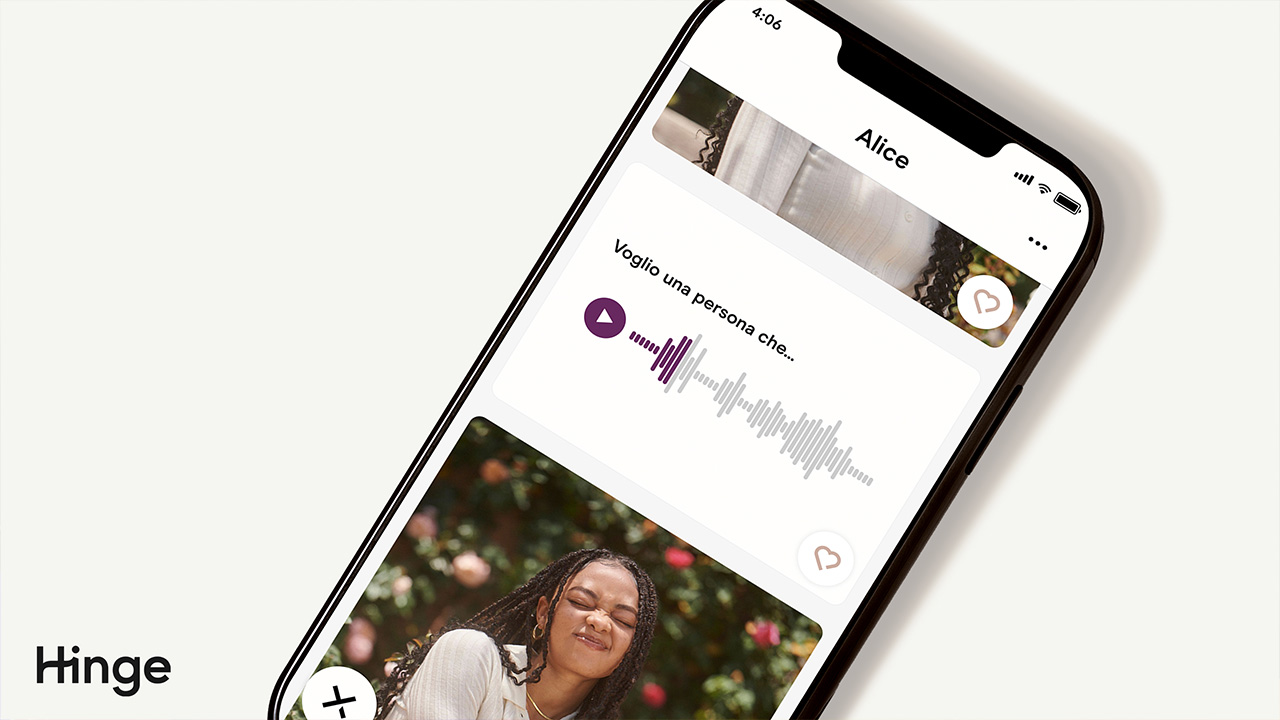








Leave a Reply
View Comments